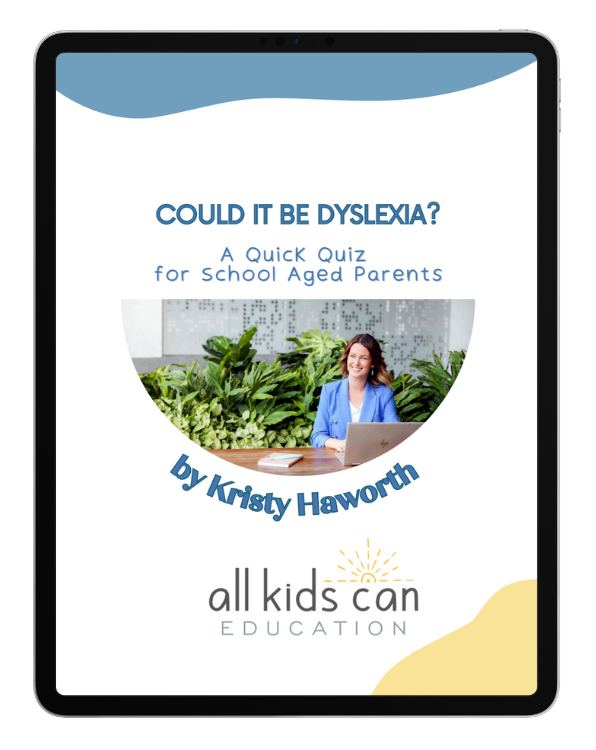Phonological and Phonemic Awareness Skills - The Golden Ticket

Have you ever heard of the term "phonological and phonemic awareness"?
Often overlooked, developing these skills in your pre-reader is actually the most important thing that you can do to set your child up for literacy success. Before they even see or know what a letter is!
The best part? It's fun, and the activities that you will be doing with your child will form strong bonds and also a sense of ease, as you'll be able to relax, knowing that you are setting your child up for later success with reading.
Phonological and phonemic awareness skills are especially vital if you, yourself, were a struggling reader back when you were learning to read and spell. Dyslexia has a strong hereditary link, so knowing this can empower us to intervene and prevent future struggles in our children's literacy development.
Ideally, we want our children to develop this skill when they are very young, but this is not always realistic because maybe no one in your child's life knew that these skills were essential to be taught. That's okay. Maybe you're only finding this information out now and your child is in mid to upper levels of primary school. We often have kids that come to our private practice that are in the third or fourth year of schooling and they have very poorly developed phonemic awareness. This is often the foundational reason why they are struggling. We then remediate this by teaching them how to break down words into individual sounds, blend sounds together to read accurately and manipulate sounds within words. Then is all starts to make sense to them. It is never too late to teach your child these skills and it is likely that this is the missing link to your child's reading and spelling success.
Phonological and phonemic awareness skills can naturally be acquired by some, usually non-dyslexic kids. However, for dyslexic kids, these skills need to be explicitly taught to ensure the understanding of how sounds work in our spoken and written language.
So, having talked it all up... let's break it down!
What is phonological and phonemic awareness?
Phonological awareness is an umbrella term that encompasses a variety of skills that form the understanding of the sounds that make up our spoken language. Later, once the child gets to the stages of reading and writing, this sound awareness is the basis of our ability to translate those spoken sounds into letters for reading and spelling. When a strong phonological awareness is present, so is a strong reading and writing foundation.
Now, let's zoom in a bit. Phonemic awareness is like a sidekick to phonological awareness. It's all about being able to identify and manipulate the individual sounds, or phonemes, in words. For example, if your kid can change the 'b' sound in "bat" to an 'h' sound and make it "hat," they're rocking phonemic awareness!
But let's back up a bit and discuss the stages in the development of these essential skills so that we can see the full scope of what we are looking at.
The stages:
Phonological awareness is the ability to recognise and manipulate the spoken parts of sentences and words.
The Skills...
Rhyme
Example: "Cat" and "hat" rhyme because they both end with the same sound, "-at."
Recognising alliteration
Example: "Sally sells seashells by the seashore." The words "sally," "sells," and "seashells" all begin with the same "s" sound.
Segmenting a sentence into words
Example: "I love to read." This sentence can be segmented into four words: "I," "love," "to," and "read."
Identifying the syllables in a word
Example: "Elephant" has three syllables: "el-e-phant."
Blending and segmenting onset-rimes
Example:
Blending: Given the onset "r" and the rime "ain," the child can blend them together to form the word "rain."
Segmenting: Given the word "play," the child can segment it into onset "p" and rime "lay."
Phonemic awareness is the ability to notice, think about, and work with the individual sounds (phonemes) in spoken words.
The Skills...
Blending sounds into words
Example: Given the individual sounds /c/ /a/ /t/, the child blends them together to form the word "cat."
Segmenting words into sounds
Example: The word "sun" can be segmented into three individual sounds: /s/ /u/ /n/.
Deleting and playing with the sounds in spoken words
Example: Start with the word "cake." If we delete the first sound /k/, we get the word "ake." If we play with the sounds and swap the first sound /k/ with /r/, we get the word "rake."
Something to remember...
These skills are like stepping stones and develop according to the child's understanding of the previously layered skills. It is like building a house. We do things in order to develop a strong sturdy house. We can't start with the roof. We need to mix the concrete first and so on, until we get to the stage when it is possible to start to put the roof on.
So, next time you're playing with your kiddo, remember to sprinkle in some phonological and phonemic awareness magic. You'll be setting them up for a lifetime of literacy success without even breaking a sweat!
Keep the learning journey light, fun and joyful, and watch your child's literacy skills soar!
You've got this!
🚀💫
Stay connected with news and updates!
Join our mailing list to receive the latest news and updates from our team.
Don't worry, your information will not be shared.
We don't spam. We will never sell your information, ever.








